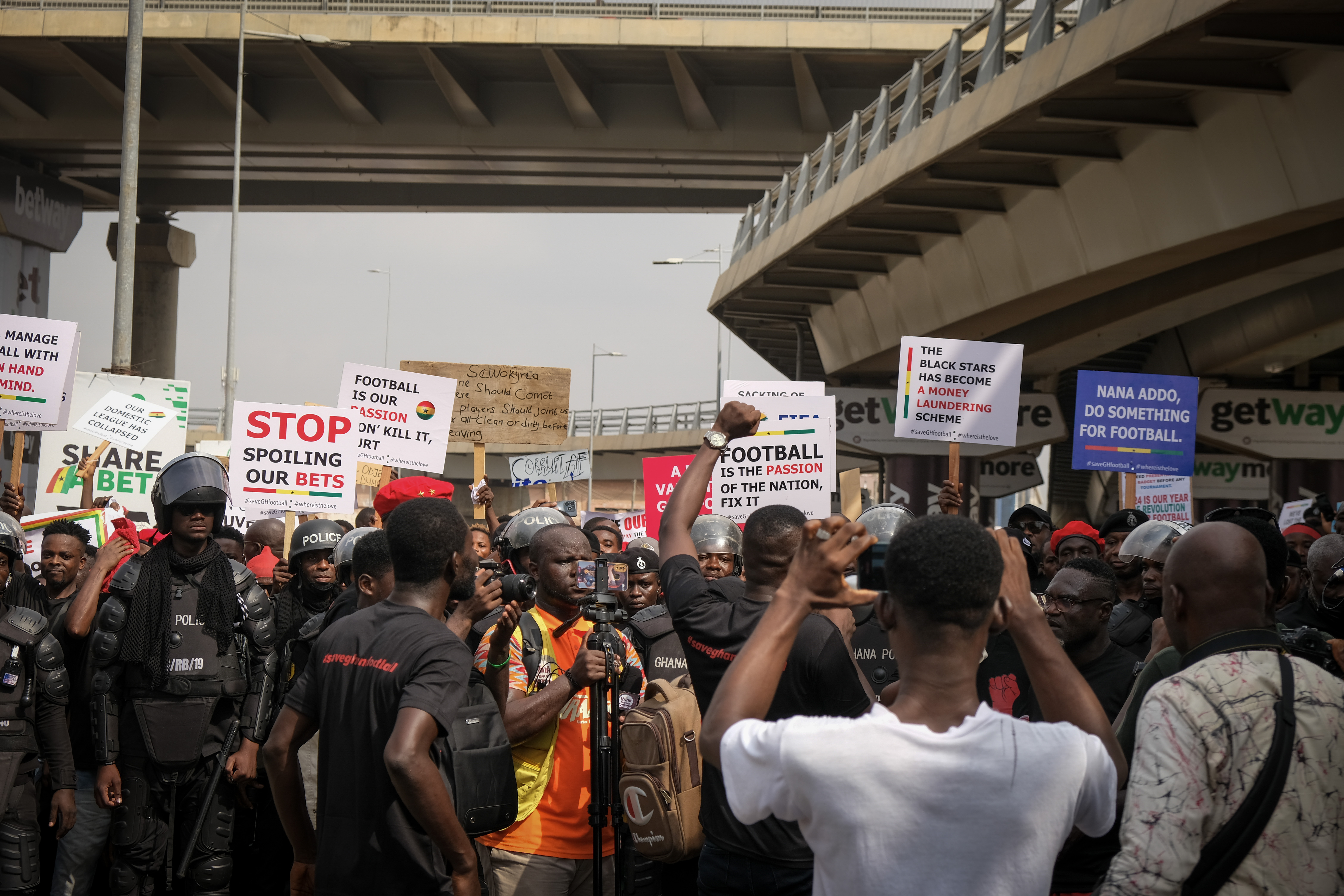
Black Star Square, ACCRA – It’s not every day that septuagenarians come out to partake in protests. It’s even rarer when the said protest borders on football, a sport that many elderly people consider mere entertainment.
But, in Ghana, football is more than just a sport. And it’s certainly more than just entertainment. It’s a passion passed down from generation to generation; a tendril ingrained in national culture, so much so that, it has a chokehold on millions of citizens, some of whose lives and livelihoods revolve around the sport.
That is why the sight of 75-year-old Emilia Okine stepping out to join thousands of youthful men and women, who hit the streets to demonstrate against the continuous deterioration of football in Ghana, was as refreshing as it was dispiriting.
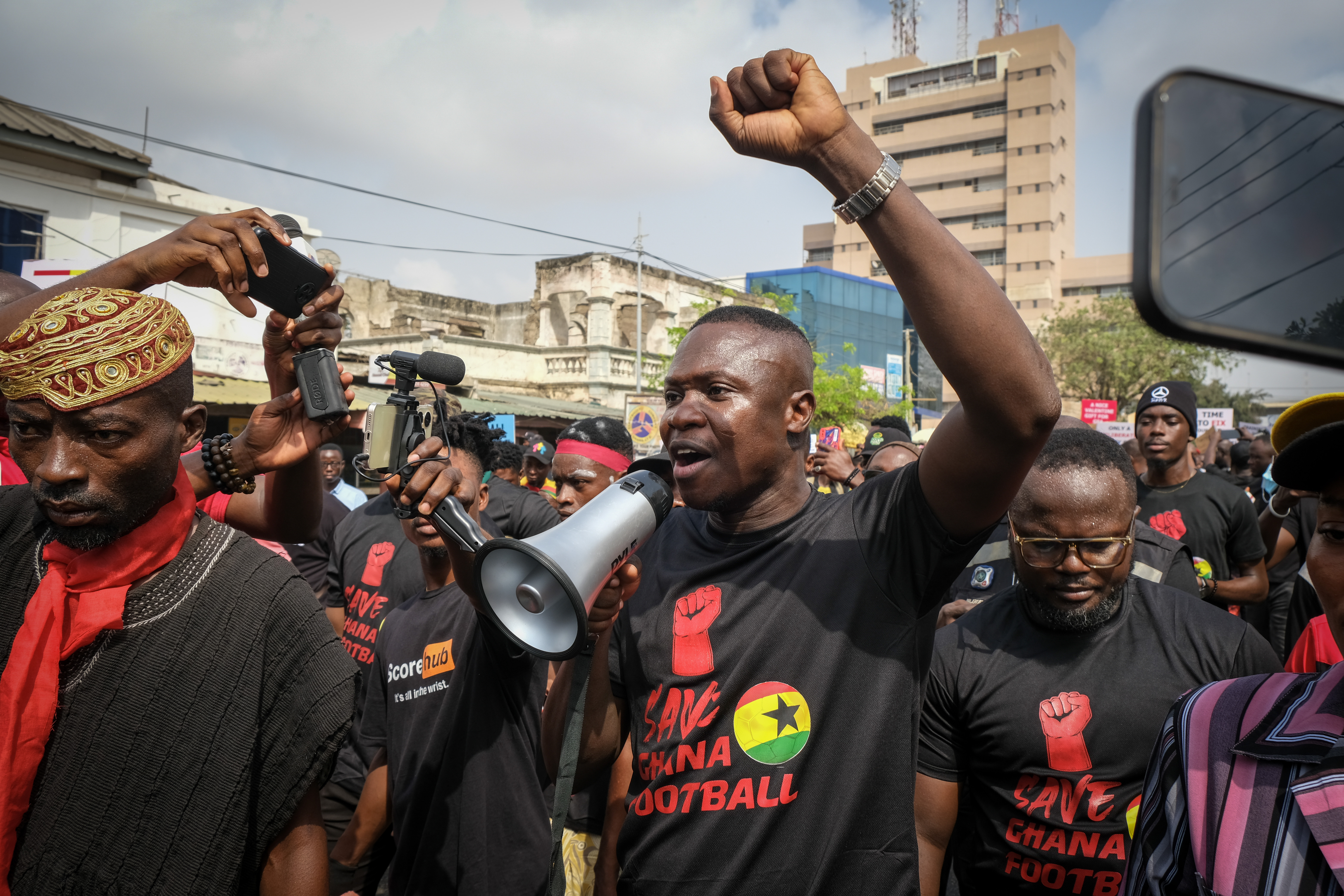
Refreshing because it’s high time those who witnessed the glory days of Ghana football reminded the current generation of what they’ve been missing. And, dispiriting, because things didn’t have to get this bad for an old woman – who should be resting on her couch and sipping a cup of cappuccino – to sacrifice her morning to join a protest.
At 75, she has seen the best of Ghana football, lived it and now she’s tired of the mediocrity that she’s being gaslighted to accept as the new standard. By the time she was a teenager, she had already seen the Black Stars win the Africa Cup of Nations (AFCON) four times.
In the five decades of her life that have followed, though, all she’s gotten used to are one disappointment after another, sandwiched by a few memorable moments at various tournaments.
The final straw for Mrs. Okine was Ghana’s disgraceful showing at the 2023 AFCON in Ivory Coast, where she watched the Black Stars – for the second successive tournament – fail to win a single game as they were eliminated at the group stage.
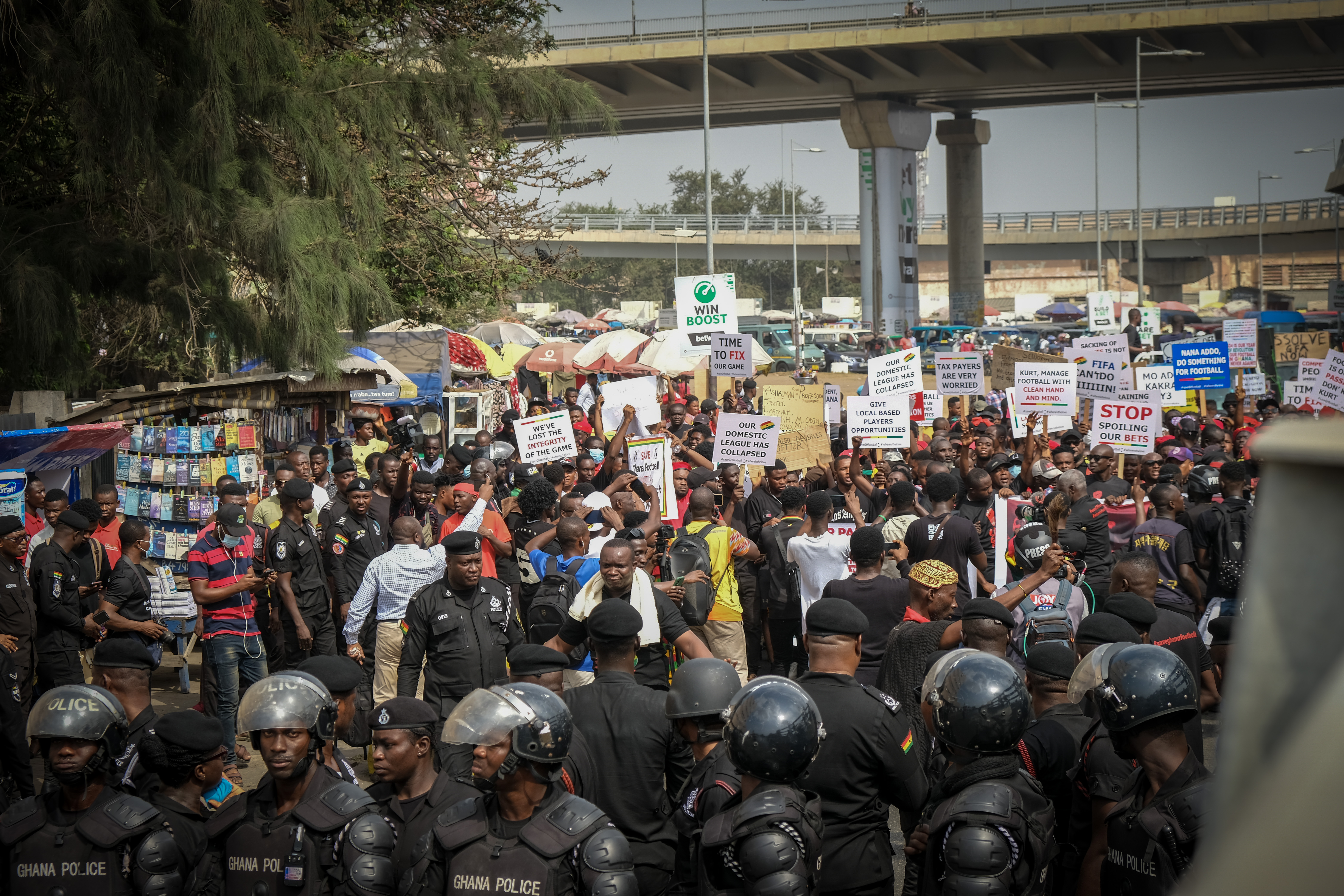
Paired in Group B alongside Egypt, Cape Verde and Mozambique, Ghana garnered a point from their opening two matches against the Pharaohs and the Blue Sharks going into their final group match against Mozambique.
But not even the knowledge that a win would guarantee them a place in the knockout round was enough motivation, as the Black Stars capitulated late in the game to squander a two-goal lead.
“At the AFCON, we were leading 2-0. So I took a short break to eat. When I returned, both goals had been equalised I couldn’t sleep that day,” Mrs. Okine, showing signs of fatigue after walking over five kilometres from the starting point of the protest to the Liberation Road, lamented.
And she wasn’t alone. Wednesday’s protest was loud. Thousands of Ghanaians, both young and old, came out in their numbers to tell the football establishment that all is not well. It was a big statement; one that screams that reforms are needed to return the sport to its glory days at all levels.
The problems of Ghana football run deeper than meets the eye. Unfortunately, though, the tone-deaf leadership by the Ghana Football Association (GFA), Ministry of Youth and Sports and National Sports Authority (NSA) has contributed to many of the fans reaching tipping points.
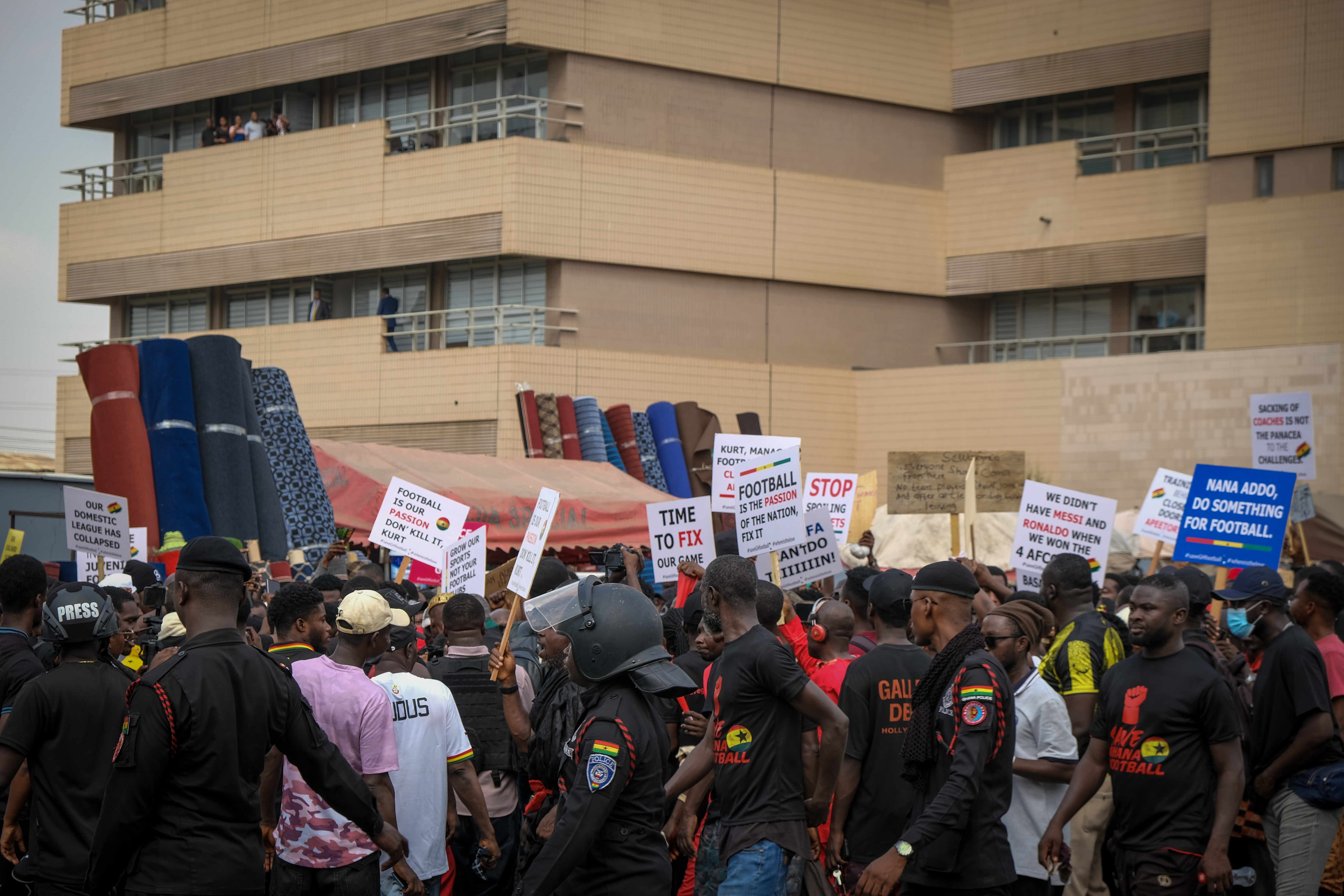
The Black Stars have been poor for some time now and their performances have been nothing to write home about in tournaments. The Ghana Premier League is also currently without a headline sponsor, with player welfare at an all-time low.
This is a league where players aren’t paid well. Those who are lucky receive their meagre wages on time, while those who aren’t lucky enough have to wait for several months and sometimes even beg to receive what is due them.
Currently, women’s football is the only encouraging thing about the sport in Ghana. But while the Black Queens have qualified for the Women’s Africa Cup of Nations (WAFCON) and the Black Princesses have also booked their place at the U20 Women’s World Cup, both teams remain unpaid, with their arrears stretching back to last year.
These are bread and butter issues, but ones that Ghana, a country that prides itself as a football nation, should not be facing. And yet, here we are.

“This is a loud protest to a tone-deaf leadership,” says another protester, David Wise Ackom. “We have leaders who think everything is okay despite the fact being the opposite. Do you need glasses to see that Ghana football is sinking?”
More than just the football teams and the leagues, a poor maintenance culture in Ghana has also left the country with not a single standard FIFA-approved stadium for Senior Category “A” matches.
“The football authorities should fix the pitches in this country so that we won’t have to be paying others to use their pitches,” Mrs. Okine rallies.
“I cannot understand how a poor country like Ghana pays $100,000 to management committee members and yet lacks basic facilities. Does it make sense? They’re all instigators,” Ackom adds.
Read Full Story


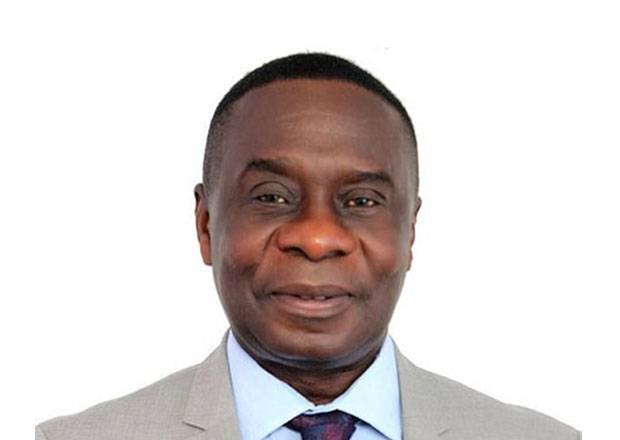
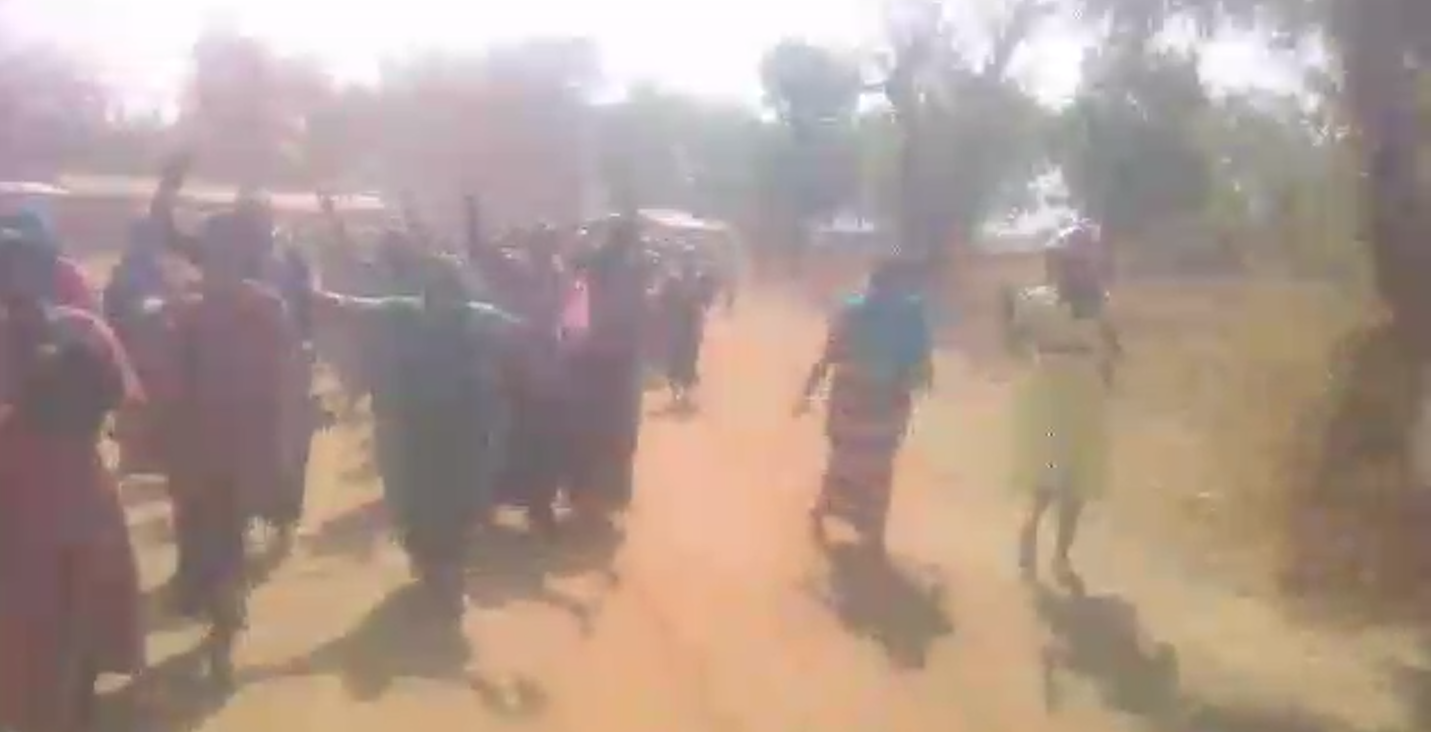





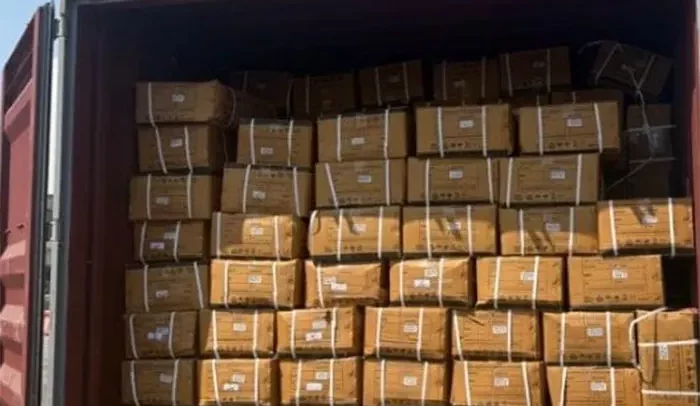

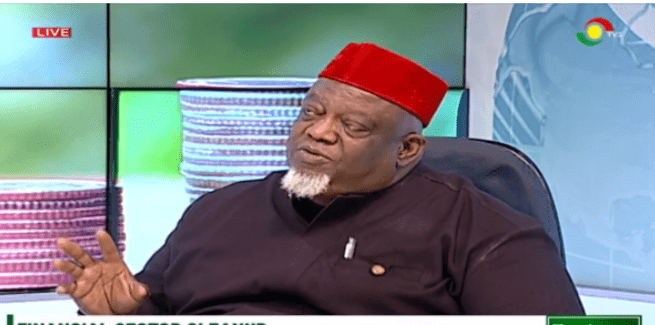


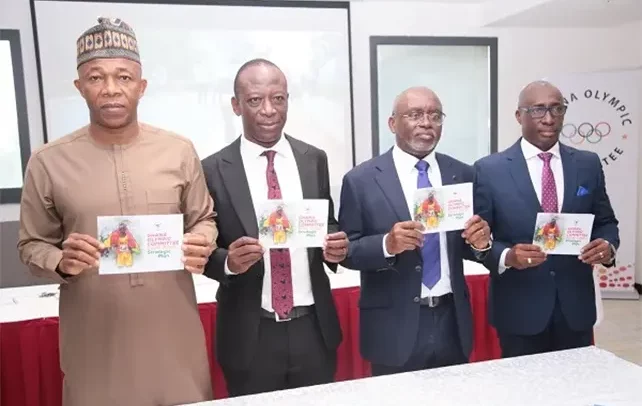




Facebook
Twitter
Pinterest
Instagram
Google+
YouTube
LinkedIn
RSS